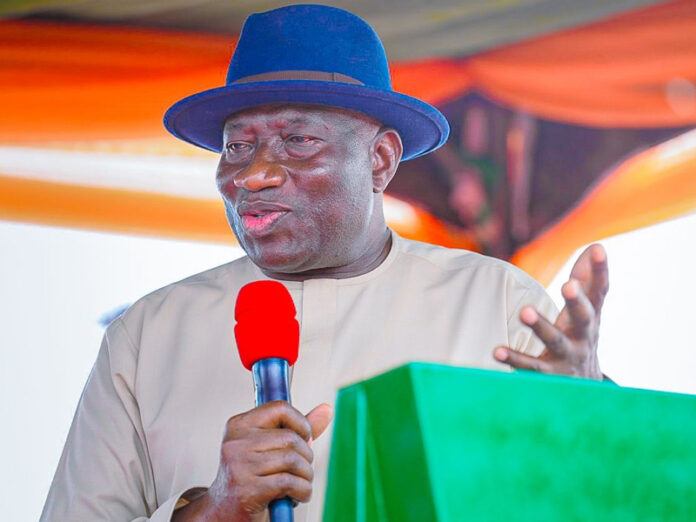Former President Goodluck Jonathan has denied accusing the late President Muhammadu Buhari of any connection with Boko Haram. He insists his statements were misrepresented by media outlets.
At the public launch of Scars: Nigeria’s Journey and the Boko Haram Conundrum, a memoir by ex-Chief of Defence Staff Gen. Lucky Irabor, Jonathan recalled a statement he made about Boko Haram naming Buhari as a negotiator. He said that he never implied or suggested Buhari had ties with the insurgents.
In a statement released by his media aide, Jonathan declared: “At no time did Dr Jonathan suggest, imply, or insinuate that President Buhari had any connection with Boko Haram or that he supported the group in any form.”
He explained that his earlier reference was meant to illustrate how Boko Haram used prominent names to cause confusion and exploit divisions.
Jonathan said his remarks were part of a broader reflection on Nigeria’s security challenges, not a political attack. “His reference was to a well-documented episode when various individuals and factions falsely claimed to represent the terrorist group… to name prominent Nigerians as possible mediators,” the statement read.
He asked Nigerians to disregard distorted reports. “Jonathan remains committed to peace, unity, and the strengthening of democratic values in Nigeria,” the statement added.
Why Chibok Still Haunts Nigeria
To understand why Jonathan’s comments strike a nerve, we must revisit the Chibok schoolgirls abduction of 2014. That year, Boko Haram insurgents kidnapped 276 girls from a government secondary school in Chibok, Borno State. Many escaped or were later freed, but around 80 remain missing.
The world rallied under the #BringBackOurGirls campaign. The event became a scar on Nigeria’s national memory—symbolising failures in security, governance, and the protection of children.
Jonathan once said of the abduction: “It is a scar I will die with.” His acknowledgment then and now shows how deeply the burden of that tragedy lingers in political discourse. His critics watch every word closely, as any ambiguity around Boko Haram evokes old wounds and suspicions.
When he says Boko Haram once “nominated Buhari” to represent them in talks, it touches on that unresolved issue. Was it an observation about insurgent tactics? Or an implied claim of complicity of the late president? Does the ex-president have a right to set the records straight to protect his own legacy, or should political expediency take the front seat?
Rate, Like 👍, Comment 💬, Share this article, Follow us on our social media handles, and Submit your own story to get featured and earn rewards!







